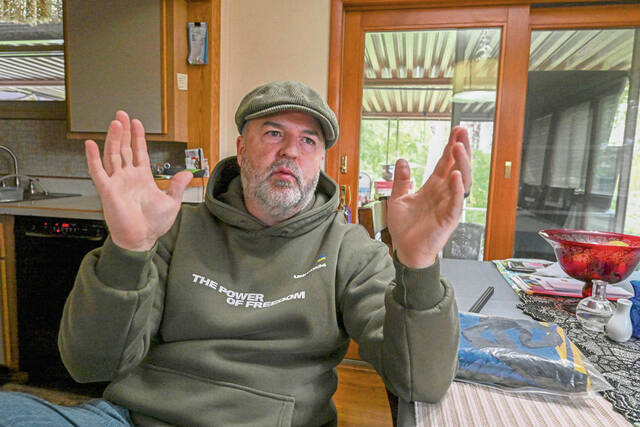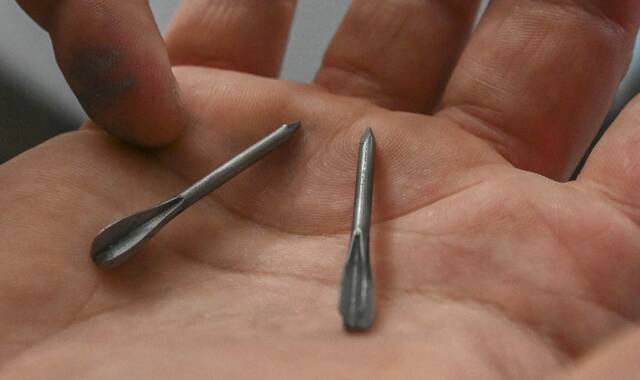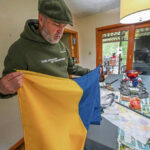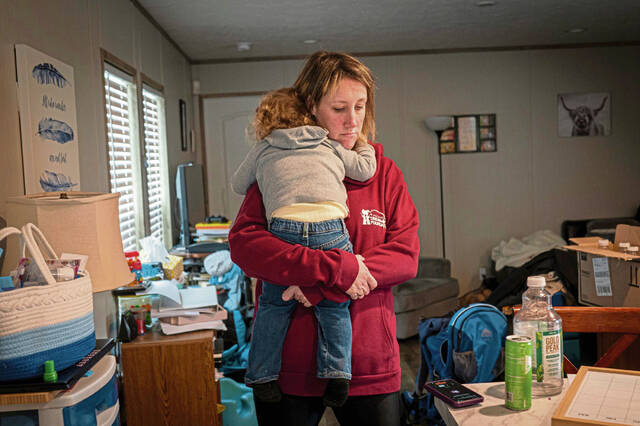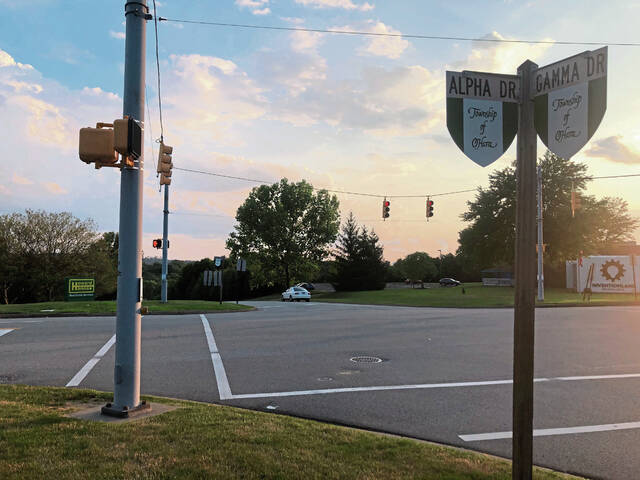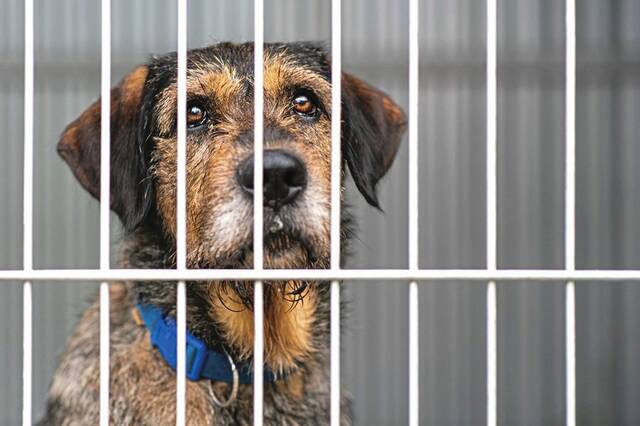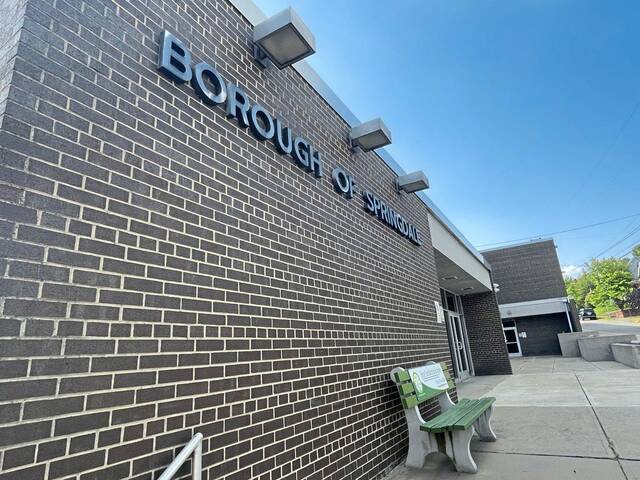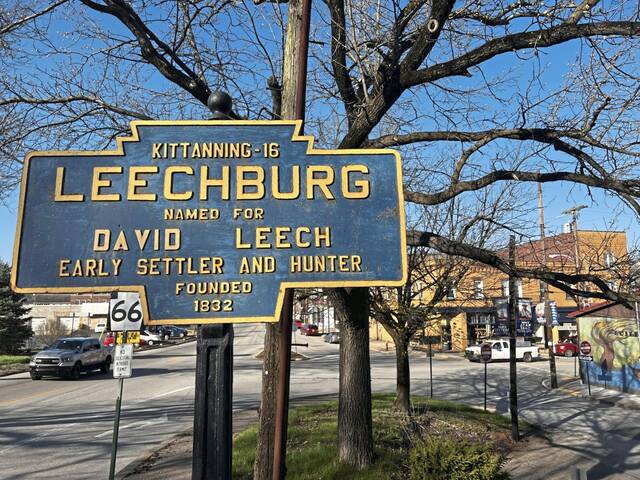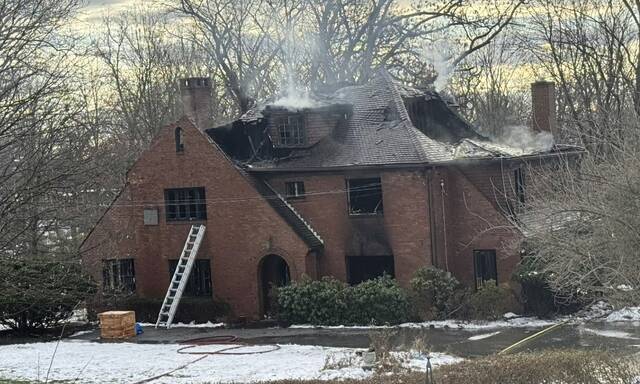The train ride from Krakow, Poland, into Ukraine was dark and cold.
When the engine pulled into the Ternopil station, Allegheny Township truck driver Mark McLure immediately felt the terror of a war-torn territory.
“The military gets on the train and they are armed with assault weapons and bomb-sniffing dogs,” said McLure, 52.
“That’s when you first get the shock of being in wartime.”
McLure volunteered five months as a missionary in the villages of Ukraine that had been pummeled over the past year by Russian troops.
“I don’t speak the language. There’s no one there that I knew,” said McLure, an Army veteran who served in the Gulf War in the early 1990s. “You just gotta have belief in what you’re doing.
“If we don’t nip this in the bud, it’s only going to get worse.”
He flew to Poland in December with plans to meet a nongovernment organization on its way to the western Ukrainian city of Ternopil. There are no flights in or out of Ukraine since the Russian invasion in 2022, which was the largest attack on a European country since World War II. The conflict has killed tens of thousands of Ukrainian civilians and countless more in the military.
One Ukrainian woman who McLure met described the situation like this to the Tribune-Review: “Every day there was shelling. We hid in the basements of our houses.
“There was no communication, no electricity and no water. It was very scary. Every day that passed seemed like an eternity.”
The strike in her town lasted nine months.
She requested anonymity for fear of repercussions but said when she was able to return to the “picturesque” village, her tears flowed uncontrollably.
“The once beautiful, cozy village turned into a ghost and 95% of it was destroyed. There was not a single surviving house.”
Another person commented, also on the condition of anonymity: “One conclusion can be drawn: the Russians came to kill the Ukrainian people.
“According to their news, Putin said that he was saving people from the Nazis in the Ukrainian government, but this is a lie. They destroyed villages and killed a lot of people and stole everything they could. They came to commit genocide.”
McLure said he witnessed an 18-wheeler operated by the Russians as a crematorium.
“The bloodshed is amazing,” McLure said. “In every village, the government buildings and schools were destroyed. Imagine walking down the streets of Lower Burrell and all the homes have brick walls around them. You just try to stay as close to the walls so the shells go over.”
Then there are the flechettes. People have to duck the tiny metal flashes darting through the air.
“They are nails with fins that look like little torpedoes,” McLure said.
“They are meant as an anti-human weapon. I would pull them out of the playground walls.”
McLure feared for his safety but was intent on providing hope.
He opted for revival detail, traveling to places previously occupied by Russian troops and delivering aid to those left behind.
His sole mission was to deliver food to civilians. The group, using Google Translator, connected with Olympic Circle, an outreach by athletes who raise money to donate to villages. Trucks transported 40-pound boxes of food to the Black Sea port of Mykolaiv, and McLure’s group carried them to a second-floor hideaway for distribution.
Inside the boxes was flour, cooking oil, beans, fruit and baby necessities. His first delivery was to Stepove, a town of 1,500 people without doctors or pharmacies. It gets a bread delivery once a week.
“The people are a demonstration in resiliency,” McLure said. “They cook, clean and bathe most times without power. There is usually six hours of electricity a day.
“The heat was working, yet it took 36 hours for the radiator to dry my towel draped over it. The water in Mykolaiv is tan and undrinkable.”
Deliveries required patience and conviction from volunteers who slept in church basements and were awakened by air raid sirens that signaled shelling from across the Dnieper River.
“The Ukrainians can be tender but are a tough, take-what-comes people,” McLure said. “They are outnumbered and outgunned, and they deserve peace.”
McLure met an 80-year-old woman named Lena. The entryway to her home had been bombed. Yet, she visits the warehouse every day to cut 2-inch squares of clothes and plastic to camouflage soldiers’ artillery.
Children were busy making sterno for use in the foxhole.
During the food distributions, McLure and others walked incessantly “to avoid being overly thanked by everyone for being ‘The American Volunteer.’
“I’m simple labor,” he said. “But to them, I am proof that the world cares about them.”
“Old women in babushkas hug you, and you nod your head with absolutely no understanding of what is being said. When they hug you twice, you know how much everything means to them.”
While there, McLure delivered a care package on behalf of Father Yaroslav Koval, pastor of St. Vladimir Ukrainian Church in Arnold. The two had never met before McLure’s trip but have become friends who bond over the Ukrainian plight.
Koval said he is grateful for the thousands of missionaries who go without hesitation to help the cause.
“Mark has a great heart, and he worked every day in distribution of food to villagers near Mykolaiv and Kherson,” Koval said. “He continues to send money to his friends in Ukraine, and really he knows the situation in our country. He is a very humble man and he wants to help.”
McLure said the trip was spurred solely by a humanitarian drive.
“I’m not religious, but your life is what you do with your deeds,” he said. “I’m just trying to help people that need it the most.”


